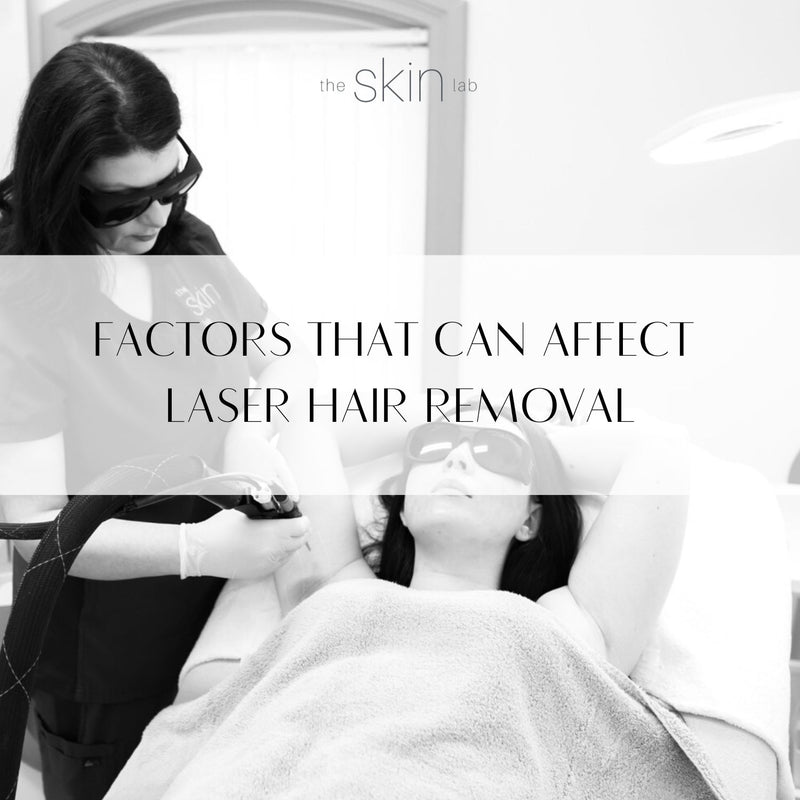Factors affecting laser hair removal results

Laser hair removal is a popular cosmetic procedure used to permanently remove hair from different parts of the body. This treatment is effective in reducing hair growth by targeting hair follicles with a concentrated beam of light, which damages the follicles and prevents future hair growth. However, there are several factors that can reduce the effectiveness of laser hair removal. In this blog, we will discuss some of the key factors that can affect the results of laser hair removal treatments.
Skin Type and Color
One of the most important factors that can affect the effectiveness of laser hair removal is the patient's skin type and color. The laser targets the pigment in the hair follicle, so patients with dark hair and light skin tend to get the best results. This is because the laser can easily differentiate between the hair and the skin, allowing it to target the hair follicle more effectively. On the other hand, patients with light hair or darker skin may not see as much success with laser hair removal.
Hair Color and Thickness
Hair color and thickness also play a role in the effectiveness of laser hair removal. Laser hair removal works best on dark, coarse hair because it has more pigment, making it easier for the laser to target the hair follicle. In contrast, light-colored hair, such as blonde or grey hair, has less pigment, which makes it more difficult for the laser to distinguish between the hair and skin. Therefore, individuals with light-colored hair may not see significant results with laser hair removal.
Hormones
Hormones can also impact the effectiveness of laser hair removal. Hormonal imbalances, such as those caused by pregnancy or menopause, can lead to increased hair growth, making it more difficult for the laser to target all of the hair follicles effectively.
Sun Exposure
Exposure to the sun can also impact the effectiveness of laser hair removal. Sun exposure can cause skin damage, which can affect the skin's ability to absorb the laser energy. Additionally, tanned skin has more pigment, which can make it more difficult for the laser to differentiate between the hair and skin, leading to less effective treatment.
Certain Medications
-
Hormone medications: Medications that contain hormones, such as birth control pills, hormone replacement therapy, and certain medications for menopause, can affect hair growth and make laser hair removal less effective.
-
Antibiotics and anti-inflammatory drugs: Some antibiotics and anti-inflammatory drugs can make the skin more sensitive to light, which can affect the effectiveness of laser hair removal.
-
Accutane: Accutane is a medication used to treat severe acne. It can make the skin more sensitive to light, which can increase the risk of side effects from laser hair removal.
-
Photosensitizing drugs: Certain medications used to treat conditions such as psoriasis, eczema, and cancer can make the skin more sensitive to light and affect the effectiveness of laser hair removal.
If you are taking any medications, it is important to inform your laser hair removal provider before your treatment. They can advise you on whether or not it is safe to undergo laser hair removal while taking these medications and adjust the treatment accordingly to ensure the best possible results.
Improper Preparation
Finally, improper preparation for laser hair removal can also impact its effectiveness. Patients should avoid plucking, waxing, or electrolysis before laser hair removal because these methods can remove the hair follicle, making it more difficult for the laser to target the hair. Additionally, patients should avoid applying any creams, fake tan, or makeup to the treatment area before their appointment, as these products can interfere with the laser's effectiveness.
In conclusion, several factors can impact the effectiveness of laser hair removal, including skin type and color, hair color and thickness, hormonal imbalances, sun exposure, and improper preparation. To maximize the effectiveness of laser hair removal, patients should consult with a qualified professional and follow their pre- and post-treatment instructions carefully. With proper preparation and the right technique, laser hair removal can be an effective and long-lasting solution for unwanted hair.